
Faridabad
100% Confidential Consultation
Top Fertility Specialists
Association With Advanced Labs
Home Sample Collection


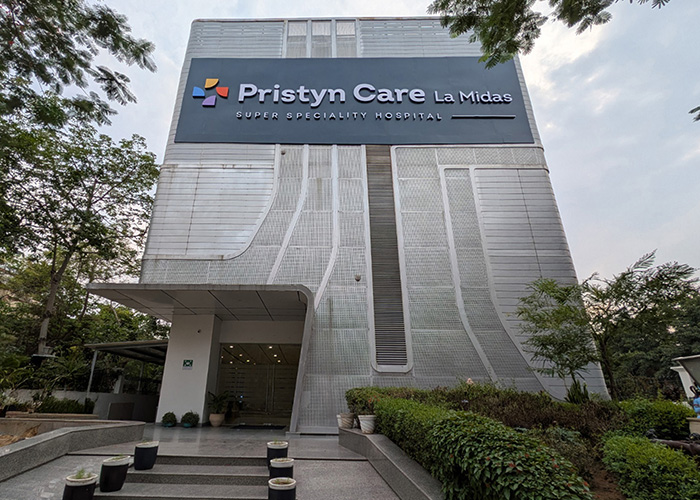
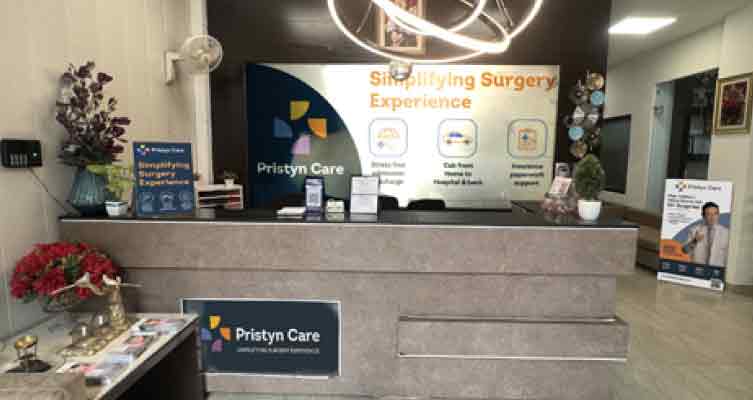
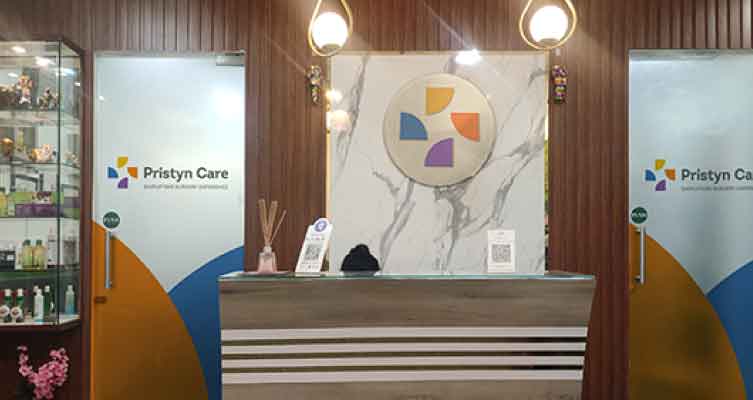
In-vitro Fertilization or IVF treatment is a common artificial reproductive procedure that helps couples conceive. As the name suggests, IVF is a reproductive treatment where a female egg is fertilized by the male sperm in a tube or a glass dish, at a specialized infertility lab.
Pristyn Care fertility centers are among the top fertility centers in Faridabad for IVF treatment. We deliver comprehensive care to individuals and couples with infertility issues by providing the most suitable treatments and ensuring effective treatment outcomes. Our IVF centers in Faridabad have a team of the most brilliant fertility specialists with remarkable experience in treating infertility through In Vitro Fertilization. In addition, our brilliant doctors and extensively trained non-medical support teams collectively ensure complete emotional support for the patients and ensure they have a comfortable and stress-free treatment journey.
Our fertility centers in Faridabad boast the most advanced infrastructure that matches international standards. We constantly upgrade our fertility centers with cutting-edge diagnostic and treatment technologies to ensure patients receive the most advanced, optimal care. Pristyn Care fertility centers strive to help individuals and couples with infertility live their dream of parenthood without facing any hassles during their treatment journey with us. To consult with our expert fertility specialists at your nearest Pristyn Care fertility center in Faridabad, contact our team right away.

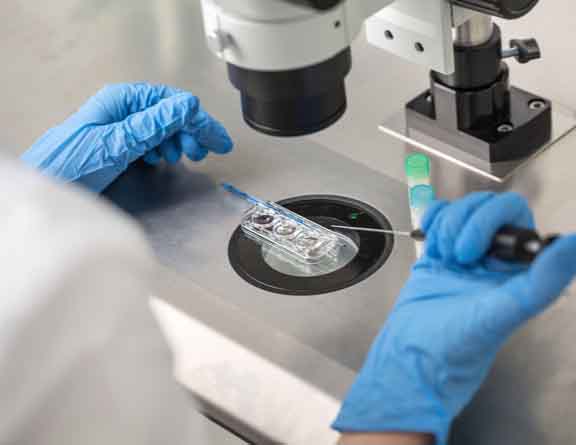
IVF Center in Faridabad - Diagnosis and Procedure
Obstetrics and gynecologists are highly experienced at Pristyn Care Faridabad. There are a few diagnostic tests the gynecologist would recommend to find the root cause of infertility and to initiate the IVF treatment:
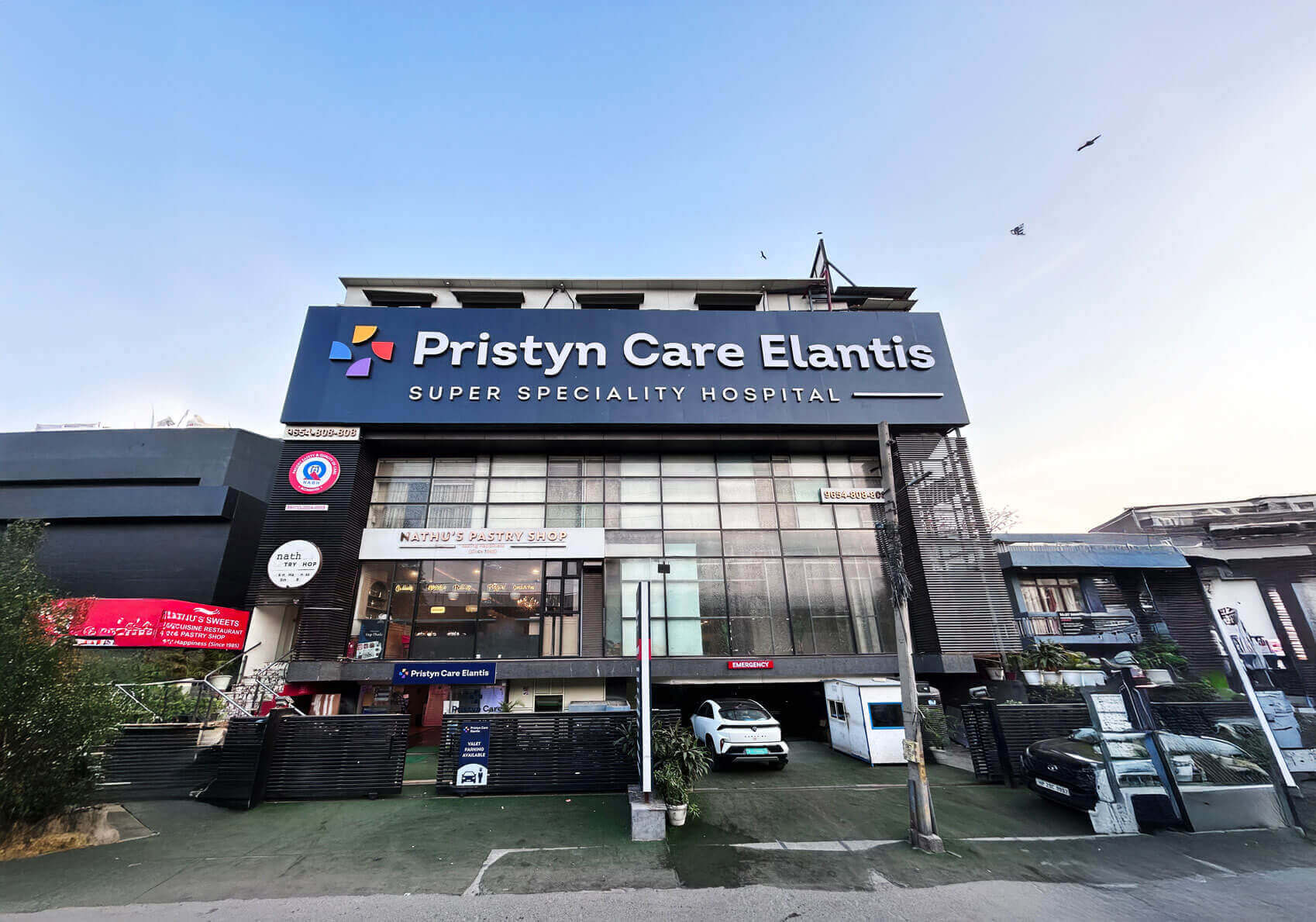

 NABH
NABHPristyn Care Elantis is dedicated to revolutionising surgical care. We combine the latest medical technology with highly skilled professionals and a patient-centric approach to transform the healthcare experience. Our team of doctors at Pristyn Care Elantis, strives to simplify the entire patient journey, ensuring a seamless process from diagnosis through recovery.
We offer specialised treatments across a wide range of medical fields, including proctology, laparoscopic surgery, ENT (ear, nose, and throat), vascular, gynaecology, urology, aesthetics, orthopaedics, ophthalmology, and weight loss solutions.
The Suites & Rooms at Pristyn Care Elantis are designed with your comfort in mind, offering a welcoming ambiance and top-notch amenities to make your stay as pleasant as possible.
Our highly skilled medical team, supported by advanced infrastructure, makes us a trusted choice for comprehensive healthcare solutions.
...Read More
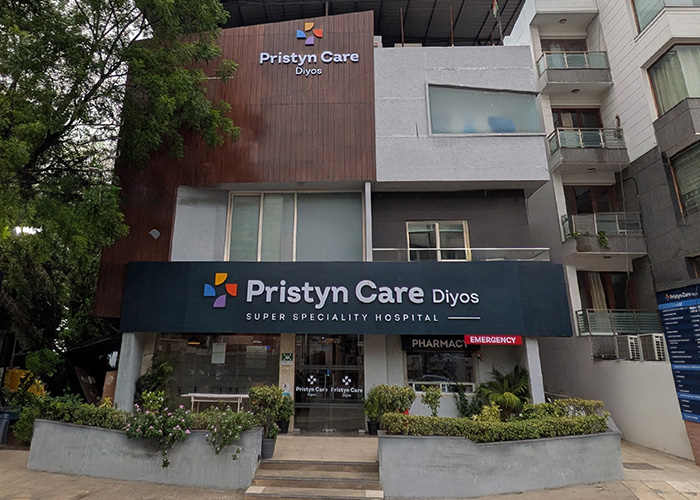

 NABH
NABHPristyn Care Diyos Super-Speciality Hospital is committed to redefining modern healthcare by blending cutting-edge technology with compassionate, patient-first care. Located in the heart of Safdarjung Enclave, South Delhi, our NABH-accredited facility offers advanced treatment solutions across multiple specialties, ensuring superior outcomes and faster recoveries.
Our dedicated team of doctors at Pristyn Care Diyos Hospital aims to streamline the entire patient journey—from consultation to recovery—by providing seamless, end-to-end medical care tailored to each individual’s needs.
We offer specialised medical services across a wide range of fields, including urology and andrology, general and laparoscopic surgery, cosmetic and plastic surgery, gynaecology and urogynaecology, orthopaedics, neuro and spine surgery, ENT (ear, nose, and throat), oncology, internal medicine, and critical care. Our facility also extends home care services for enhanced convenience and continuity of care.
The suites and patient rooms at the Hospital are thoughtfully designed to ensure a comfortable and healing environment, featuring modern amenities, hygienic surroundings, and attentive support for both patients and their attendants.
Supported by a skilled clinical team and world-class infrastructure—including modular operation theatres with HEPA filters, advanced diagnostic labs, and high-end medical equipment— Pristyn Care Diyos Hospital stands as a trusted destination for safe, effective, and personalised healthcare.
...Read More
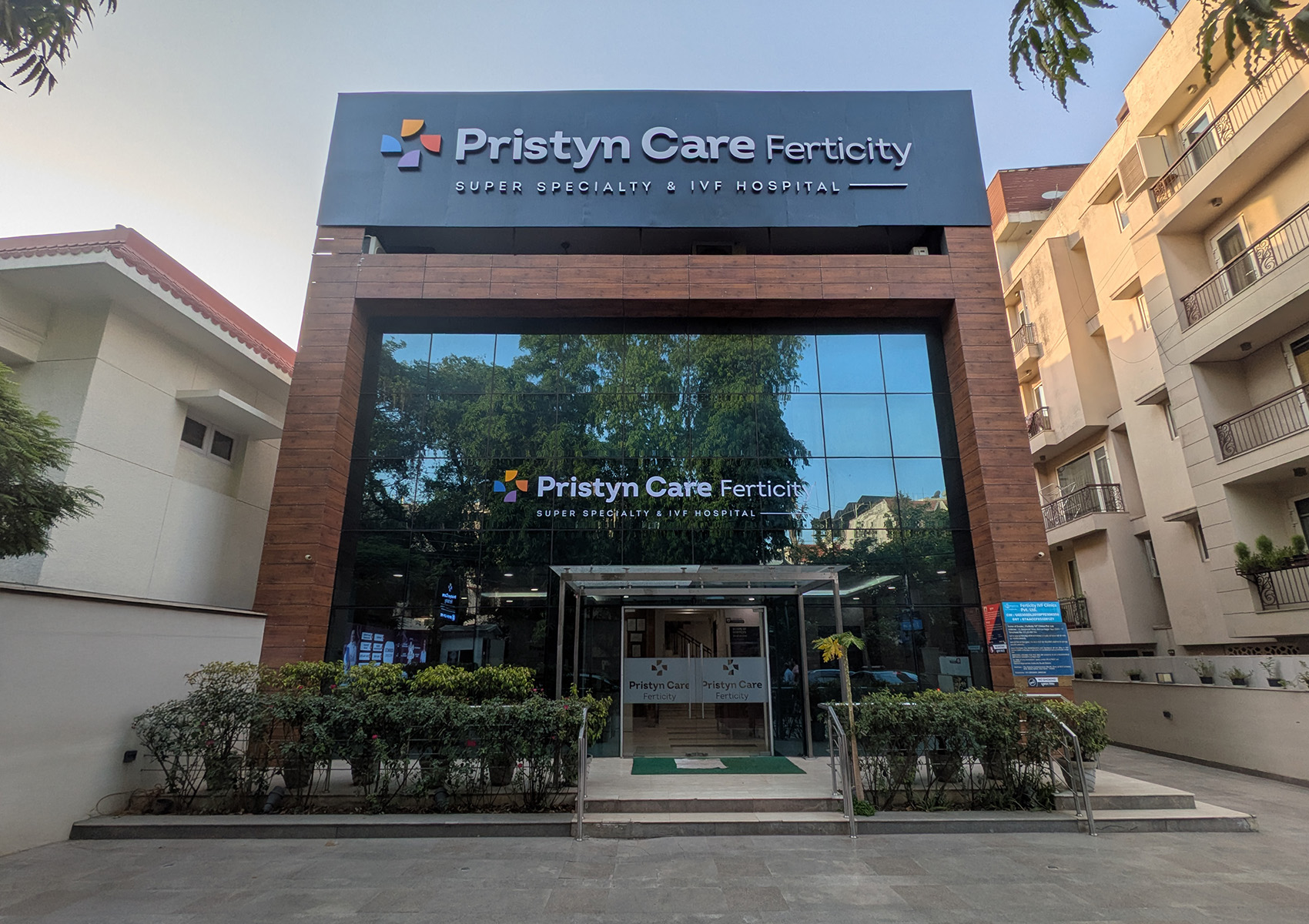

Located in South Delhi, our facility is spacious, serene, and designed to make couples feel comfortable throughout their treatment. We pride ourselves on a warm, clean environment, offering easy access and convenient parking.
With a reputation built on the strength of our experienced clinical team, we specialise in customised treatment protocols and provide comprehensive care, from the initial consultation to treatment completion. Pristyn Care Ferticity Super Specialty & IVF Hospital has helped over 40,000 families worldwide realise their dream of parenthood, maintaining the highest success rates in the field.
Our clinic ensures a partnership between patients, doctors, and staff, delivering compassionate care every step of the way.
...Read More
Best IVF Centre in India with High Success Rate
We provide a free home sample collection facility to save patients from the hassle of commuting to the clinic/hospital. Our executives collect the samples for IVF from the patient’s doorstep, and the samples are preserved and deposited for testing/treatment with care.
We ensure 100% confidentiality of the patients throughout the treatment process. All the treatment details and documentation are kept secure, and no information, under any circumstance, is leaked to an outside party.
Below is a table summarizing the average IVF success rates by age in India:
| Age Group | Average IVF Success Rate |
| 28 years | 45-55% |
| 31 years | 40-50% |
| Under 35 years | 35-45% |
| Over 40 years | 15-20% |
Note: These success rates are averages and should not be considered a guarantee. Individual success rates can vary based on several factors.
Here are a few ways to make IVF successful the first time:
IVF treatment is safe and women who undergo IVF generally face no problem during or after their pregnancy. However, in certain cases, women have reported suffering from conditions like ovarian hyperstimulation due to fertility drugs. To prevent such complications and undergo safe IVF treatment, consult with the best IVF fertility specialist in Faridabad.
IVF may fail due to several health related related reasons. Common reasons include poor embryo quality due to poor egg or poor embryo. IVF treatment may also fail if the embryo does not properly get attached to the uterine wall.
Yes, you can travel after IVF but sure that you discuss your travel plans with your doctor. Make a list of fertility clinics and hospitals in the city to which you are traveling so you don’t face any problems during any emergency.
It is not the number but the quality of the eggs that matter most in IVF treatment. On average, 8 to 14 eggs are typically retrieved from a woman’s ovaries. The success rate of IVF treatment is likely to be higher with 1 high-quality egg than 20 poor-quality eggs.
Yes, IVF babies are healthy like normal babies. They grow like normal babies and they can undergo normal deliveries too. Once they are born, nobody can say whether the baby is an IVF baby or a normal baby.
Foods to eat during IVF treatment:
Foods to avoid during IVF treatment:
Anyone seeking quality IVF treatment in Faridabad must thoroughly research which fertility center they should choose for their treatment. Your choice of clinic can play a huge role in determining your treatment outcomes. You must consider some factors before choosing a fertility center in Faridabad for your IVF treatment, including:
Location of the center: Most fertility treatments require multiple visits to the center. Therefore, you must choose a fertility center in Faridabad, which is easily accessible to you.
The fertility center’s success rate: It is important to research the success rate of the fertility center. Look for centers with high success rates in terms of live births or pregnancy rates. But, keep in mind that success rates can vary depending on factors such as the age of the patients and the specific fertility issues being addressed.
Their team: Thoroughly research the center’s medical team’s qualifications, experience, and expertise. For example, check if the clinic houses board-certified fertility specialists.
The technology available at the center: You can either go through the fertility center’s website or visit the center to check the facilities they offer and the kind of technology they use. Go for centers with well-equipped laboratories, advanced reproductive technology, and a comfortable treatment environment.
Cost of treatment: Ask the center about their pricing structure and how you can pay for the treatment. You can also ask them if they offer any financial assistance.
What others have to say: Go through reviews and testimonials from former patients of the fertility center. Reviews and testimonials can be found on multiple online platforms.
Considering these factors before choosing the best treatment center will ensure that you receive quality care.
Choosing a reputed fertility clinic for IVF treatment ensures better treatment outcomes, fewer hassles, and a positive treatment experience. You must take the time to research and consider various factors to make an informed decision that fits your criteria and preferences. Here’s why choosing a good fertility center for IVF is important:
Medical team: The best fertility centers with the best qualifications, experience, and reputation. Highly skilled and experienced professionals would adhere to the medical guidelines and provide precise, safe, and effective IVF treatment.
Top-notch technology and facilities: The top fertility centers will most likely have the most cutting-edge technology and equipment and will offer the best facilities to simplify the patient experience. You can either visit the center or check out their website to gather information on the technology and facilities available at the respective clinic.
Trusted by patients: Good fertility centers will have the trust of the patients. You can therefore trust the procedures they provide and be stress-free during your treatment journey.
Comprehensive treatment experience: Fertility centers with a good reputation will offer comprehensive treatment solutions and end-to-end care, starting from the initial consultation to follow-up care. A comprehensive treatment plan minimizes the need for multiple referrals and helps save time and money.
Transparency in the process: A good fertility center will ensure complete transparency in the treatment process. They will give you the correct information about the treatment options, diagnostic process, risks and complications, cost of the procedure, and so on.
While looking for a fertility center, remember to consider the benefits mentioned above, and ensure effective treatment outcomes.
Getting pregnant naturally after 40 is compartively tougher than that at the age of 25 or 30. It is a challenging task because with age, the egg quantity and the quality starts declining. Howveer, with medical advancements, it has become possible that a woman can still become pregnant in her 40s. In such a case, the woman and the couple can depend on donor eggs.
There’s no way you can prevent eggs from aging. But there are ways to improve the quality of your eggs, reduce stress and inflammation, improve your health as per childbearing needs and have a successful pregnancy.
| Sr.No. | Doctor Name | Ratings | Experience | Address | Book Appointment |
|---|---|---|---|---|---|
| 1 | Dr. Ila Gupta | 4.6 | 33 + Years | 12, Navjeevan Vihar, Malviya Nagar, New Delhi | Book Appointment |
| 2 | Dr. Priyanka | 4.6 | 15 + Years | 12, Navjeevan Vihar, Malviya Nagar, New Delhi | Book Appointment |
| 3 | Dr. Mannan Gupta | 5.0 | 15 + Years | 29, Ring Road, Block L, Lajpat Nagar, New Delhi | Book Appointment |
| 4 | Dr. Pooja Bajaj Wadhwa | 4.6 | 14 + Years | 12, Navjeevan Vihar, Malviya Nagar, New Delhi | Book Appointment |
.svg)
.svg)